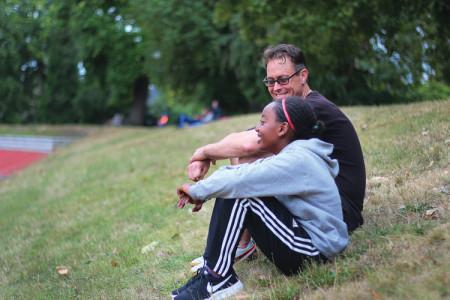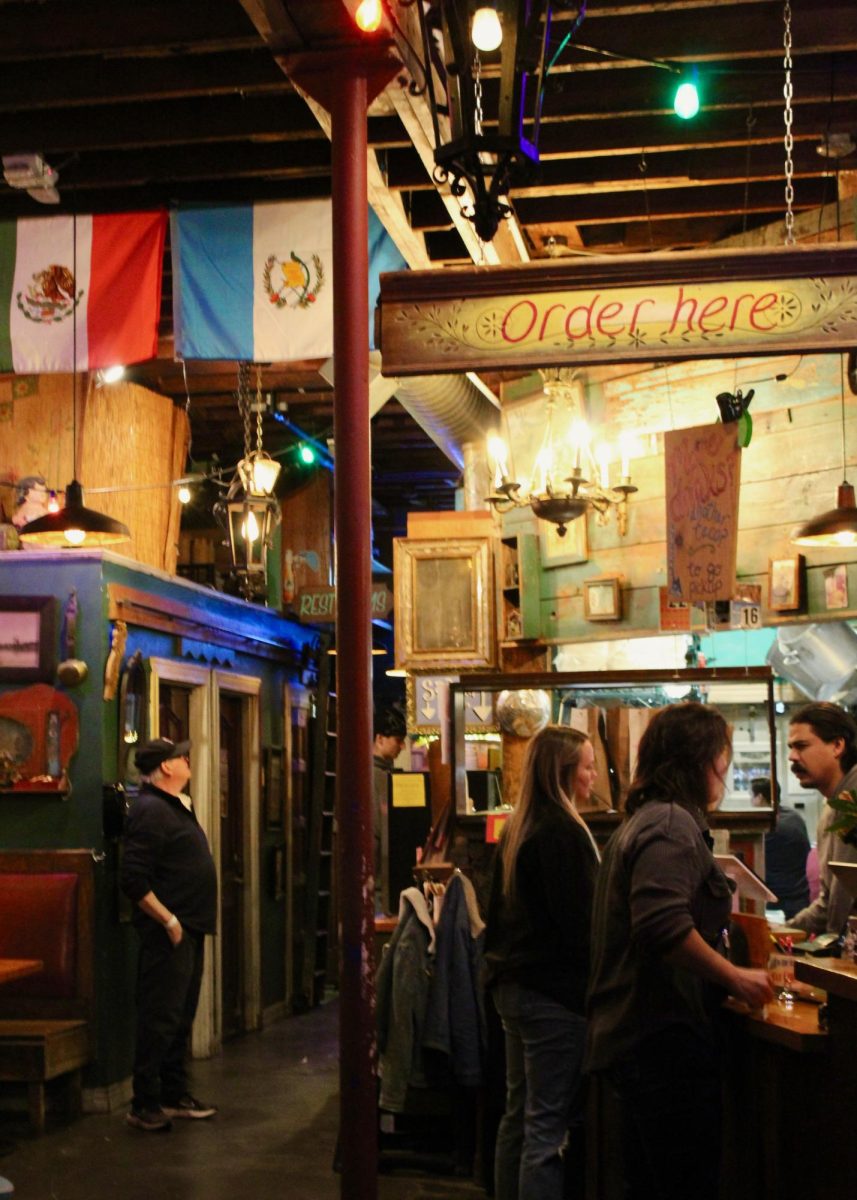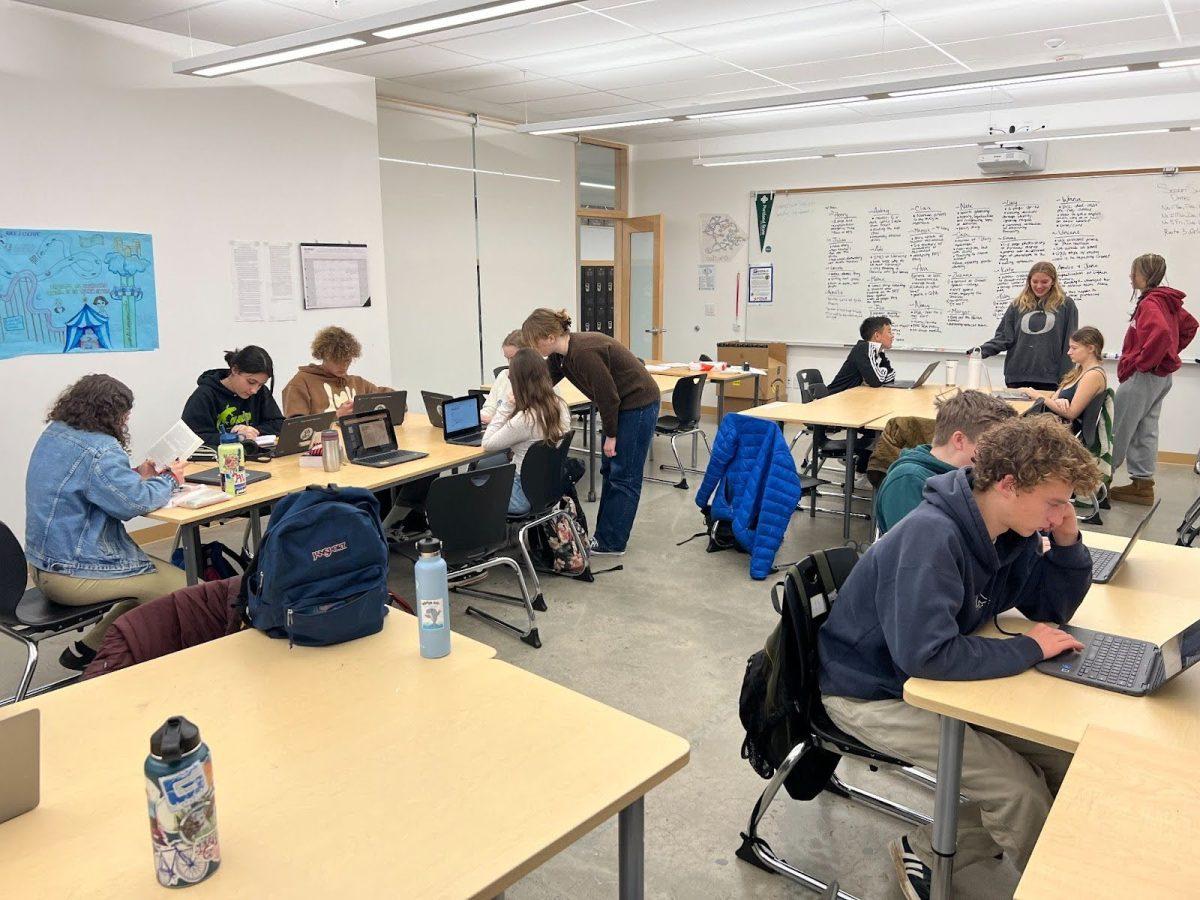Tina Smillie was sitting at her desk in her last class of the day at Takamori Elementary School in Sendai, Japan when everything began to shake.
That Friday afternoon in March 2011, the Pacific Coast of Japan was hit by a 9.0 magnitude earthquake. It would be the fourth largest earthquake ever recorded in world history, killing more than 20,000 people and creating havoc around several nuclear power plants that were affected.
“I got my notebook out,” recalls Smillie, now a Grant High sophomore. “And then the floor started to shake.”
She and the other students in her fourth grade class calmly climbed underneath their desks, following protocol. After experiencing several minor shakes throughout the week, Smillie and her class assumed they weren’t in danger.
But when she began to feel the building lurching from left to right, she knew something was wrong and ran out of the school with her classmates. “Everyone was just crying,” Smillie remembers.
As panic kicked in, she tried to recall the last thing she had said to her parents, but couldn’t. Luckily, everyone in her school made it out alive, and soon Smillie’s parents picked her up and took her home.
But nothing was the same after that and for Smillie, the disaster marked a time when she made a choice: to move without her parents across the world to Portland.
Now five years later, the 15 year-old Smillie sits at the dining room table looking through an old photo album that contains a blend of two different cultures, America and Japan. Even the shelf across from Smillie is stuffed with books in equal parts English and Japanese.
For her, the earthquake turned into an opportunity to pursue her dream of living in the U.S., a dream that’s been with her since she was young. “(America) was just always a part of me,” she says. “I think I was meant to live there.”
She lived with relatives in Portland and was separated from her parents and sister for eight months. But for Smillie, whose independence has shown since she was young, the move was natural.
“I was confident. If anybody could handle it, she could,” says Smillie’s dad, Braven.
After years of change, Smillie finally feels like she belongs. “I’m not missing out on anything,” she says.
Smillie was born in Tokyo and later moved to Sendai when she was 1. Her parents met in Japan while working for a news wire service. While her mom, Chiaki, was native to Japan, Braven was born in the United States and came to Japan through a student exchange program in high school. With parents from both countries, she’s been immersed in the two cultures since birth.
It was in Smillie’s nature to organize activities on her own.
“She was the first kid in our neighborhood to start ‘trick-or-treat,’” says Chiaki Smillie, explaining that her daughter delivered flyers for the event to neighbors.
She started her own dance group with friends, meeting every week to choreograph routines.
She strove to become fluent in Japanese and English in order to fulfill both sides of her identity.
“I always lived half-and-half in both worlds … In our home and in school, too,” – Tina Smillie
She loved watching American TV shows like “Hannah Montana” and admired the way the characters spoke perfect English and had lockers in their schools, something she didn’t have in Japan.
Braven Smillie was eager for her to experience both cultures. “I know how hard it is to become bilingual just by academic studying, like in school,” he says. “So I thought, ‘What a great opportunity to be moving back between both countries.’”
Smillie and her family visited San Diego nearly every year during summer or winter breaks. There, they met up with family members, and Smillie and her younger sister, Elena, would go to summer school at a church to learn in English.
Back in Japan, struggles with language made it tough to balance both worlds, and her dad acknowledged the difficulties she faced.
“People are fairly strictly categorized according to different types,” says Braven Smillie. “You just naturally assume everybody’s Japanese … Unless they’re slightly different – then you stand out, for better or for worse.
But it wasn’t until she experienced her first real move – the family moved to another neighborhood in Sendai – that Smillie began to consider moving much further away.
“I felt like it would be different,” she says. “I always felt like I wanted to be in both (countries)… I guess the grass is greener on the other side of the fence.”
Even though her parents expected their daughters would stay in Japan until college, Smillie was set on moving for good, determined to end her struggle with language and move to the country she’d come to love.
“I remember her saying that, ‘I will go, even if I am alone,’” says Chiaki Smillie.
But not everything went as planned. After the earthquake hit her city, Smillie became paranoid, fearing the hundreds of aftershocks that were to come at any moment.
“When they go through a disaster like that,” Braven Smillie says about his daughters’ experiences, “It’s the first time that they realize their parents are not always there to save them.”
But Braven and Chiaki reassured their daughters and did their best to stay safe, sectioning off a room in their house with one large bed and no loose objects in order to avoid injuries.
They also focused on the positives. Smillie remembers the community “was really coming together.” Citizens checked on friends and the elderly almost daily. Markets sold large bags of food and supplies for 50 cents each, and Smillie’s family worked together to stabilize their lives during an unsteady time.
“Things were very up-in-the-air for our whole family,” says Braven Smillie. Like others in their city, they were faced with options about what to do next: moving to a new city to escape potential radiation poisoning or moving to a new country and starting fresh.
“(America) was just always a part of me, I think I was meant to live there” – Tina Smillie
Smillie remembers going back to her dream. She says the earthquake showed her what it was like to live with change. “(I) was like, ‘OK, I’m more ready than I thought,” she recalls.
“Tina … really tipped the scales in favor of us taking that adventurous step of just completely turning our whole lives around,” Braven Smillie says.
After attending a family event in San Diego, the family decided to part ways. Chiaki couldn’t stay in the U.S. because she didn’t have an immigrant visa, and Elena, being three years younger than Smillie, needed to continue her Japanese education. Braven had to stay to work.
But for Tina Smillie, it was clear that her time in Japan was over. She made her best friends bracelets and spent a night with each of them to say goodbye.
Her parents notified friends and relatives about their daughter’s move.
“She was like the trailblazer for her family,” says Braven Smillie.
Tina Smillie flew to Portland where she moved in with her aunt and uncle in the Sellwood neighborhood. “It was almost like being with a host family, but after a while, it felt really like I was living in my house,” she says.
She restarted fifth grade at LLewellyn Elementary School and spent the next six months in a brand new life without much communication with her parents and sister.
“Living with people that I hadn’t lived with for longer than a month, that really made me mature,” she recalls.
The move also meant that she had to get used to a new culture fast. At school, U.S. history was a challenge. She learned who Lewis and Clark were when a friend explained after seeing a Lewis-and-Clark-themed ride in Oaks Park.
Language still hindered Smillie’s progress, especially writing. She hated written assignments that were displayed in the hallways because she worried people would see her imperfect English.
“I was thinking of these words that I wanted to write, but I couldn’t spell them, so I’d have to think of other words that were easier to spell,” she remembers.
By the end of 2011, Braven Smillie was able to leave work and family in Japan and return to the U.S. to set up a new home in Southeast Portland. He and his daughter moved into a new house in a new area.
“She had become American,” her dad says of reconnecting with his daughter.
A year after the quake, the rest of the family joined them. “I just missed them so much,” Smillie says. “Having my mom’s voice and my dad’s voice and my sister’s voice…feels like a real family.”
The family moved again to Northeast Portland, and the girls started in the Japanese Magnet Program.
Through the program at Mt. Tabor Middle School, she was able to take a two-week trip back to Japan, which reminded her of her time in the country. “When you’re back, you just remember living there,” she says.
Her dad recalls how she appeared nostalgic for her Japanese home. “She had friends over there that she missed, and she’s really bicultural in that way,” he says now.
As a freshman at Grant last year, Smillie felt at ease in the community, especially since it included many former Mt. Tabor students.
Today, her family has settled down in a house they own, and Smillie has turned her focus to dance. She made it onto the Gendrills last year and hopes to continue dancing.
She says she also wants to pick up another language – French. Her goal? To visit new countries.
She stays in touch with her roots by studying Japanese in school, reading it in books and speaking it with her mom.
“Now I value my Japanese more,” she says. “And it just feels good that I’ve lived in both worlds. It’s satisfying that I didn’t miss out on anything. Everything that happened made it possible to be here and move forward.” ◊










































